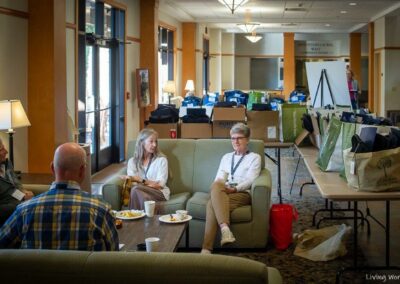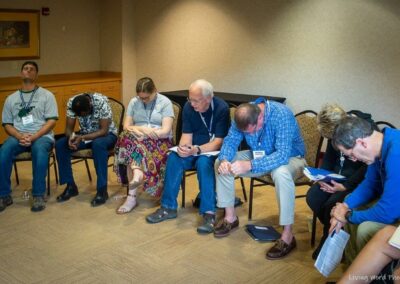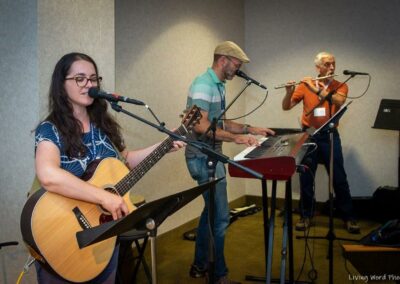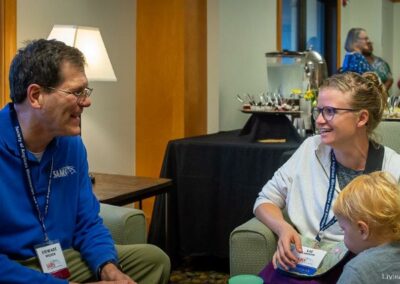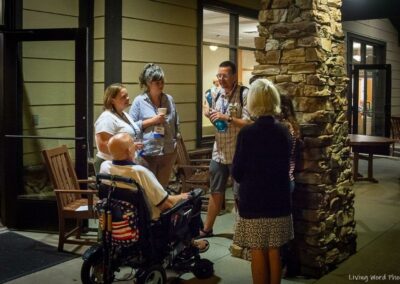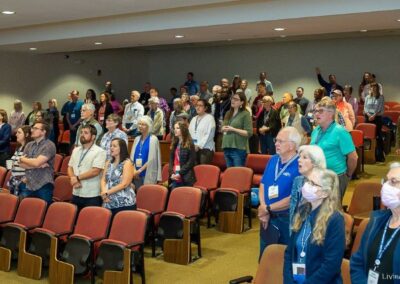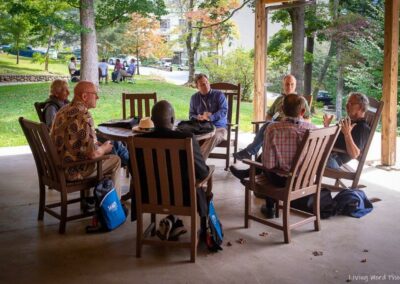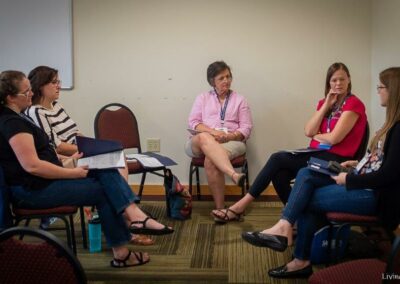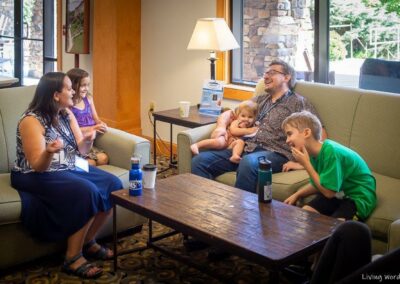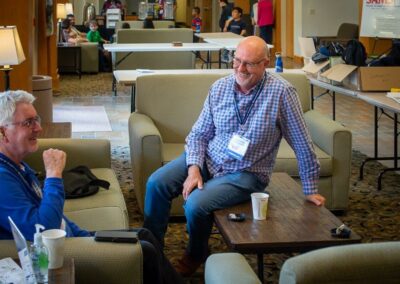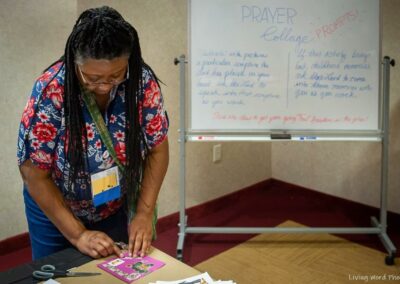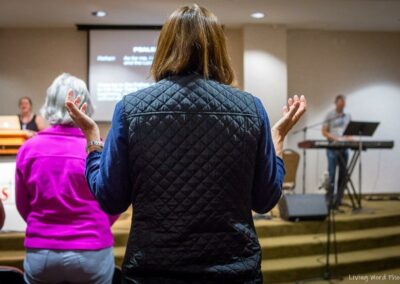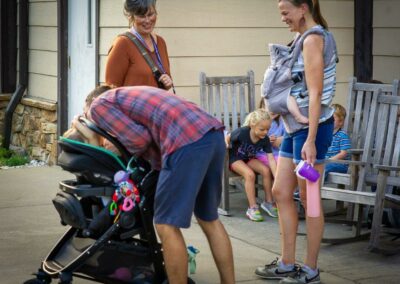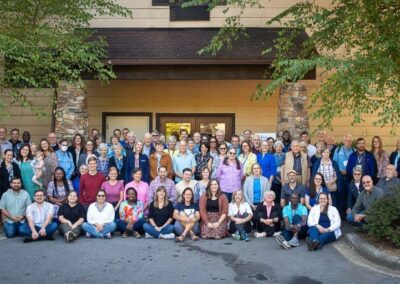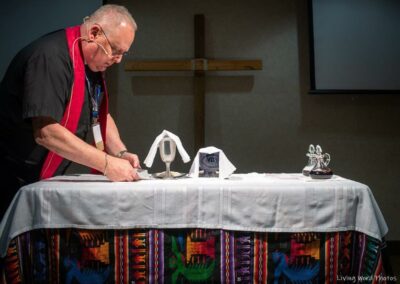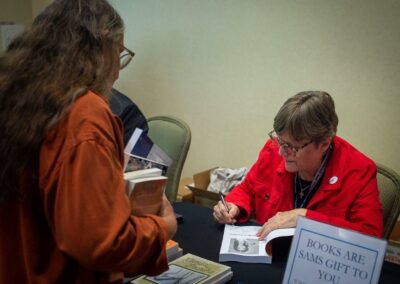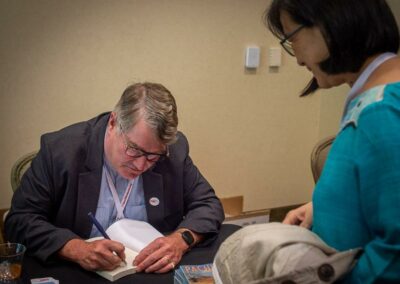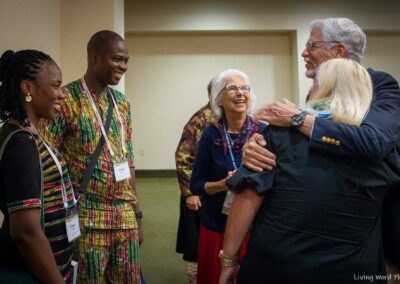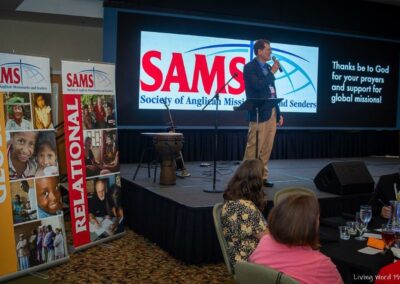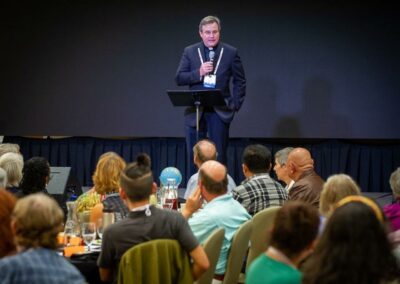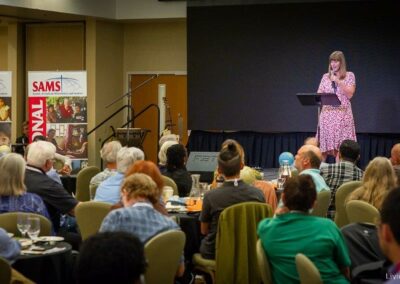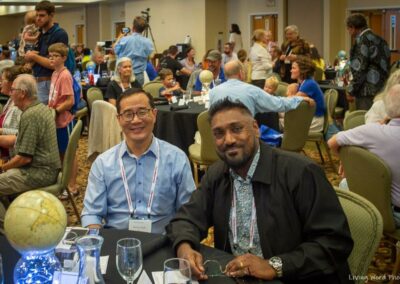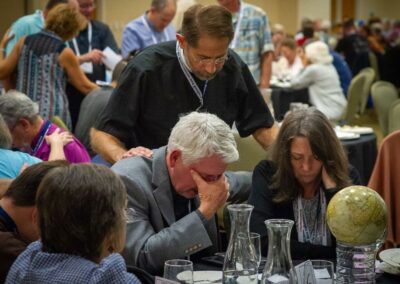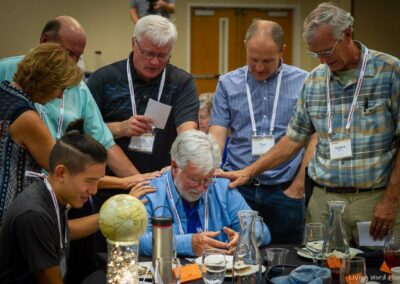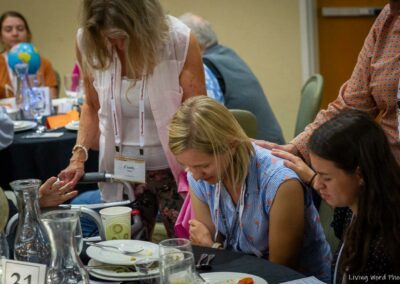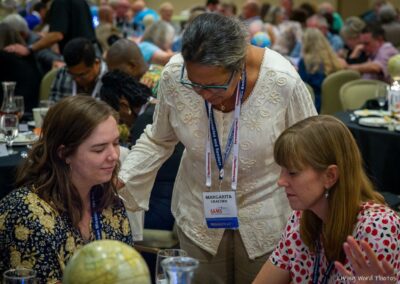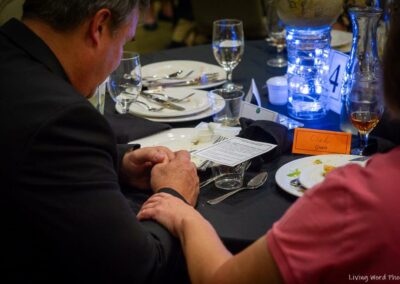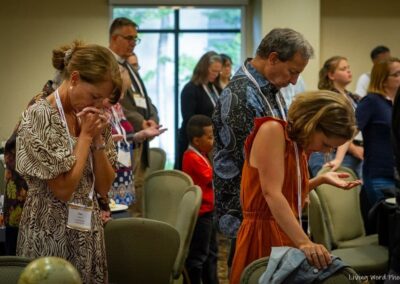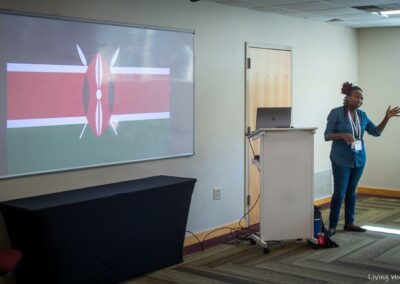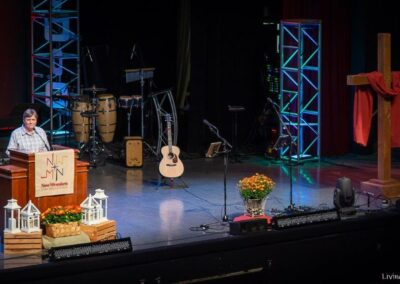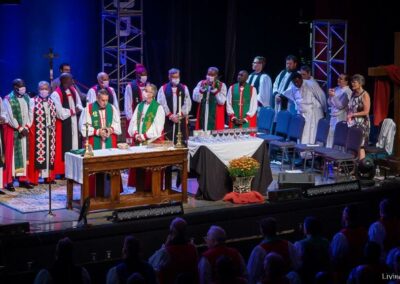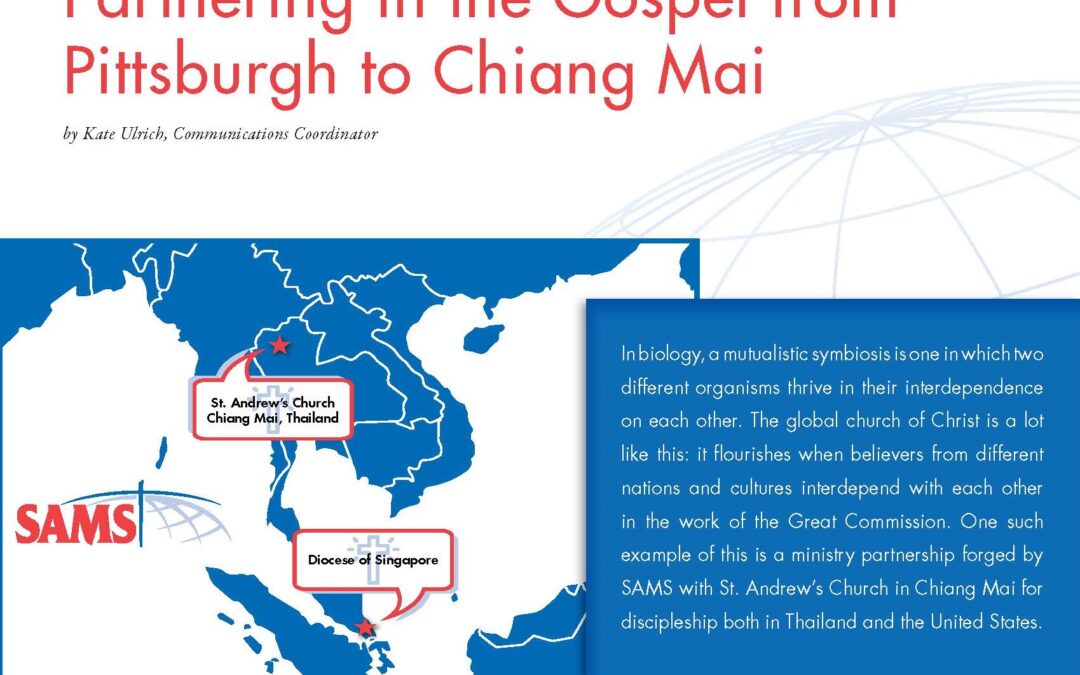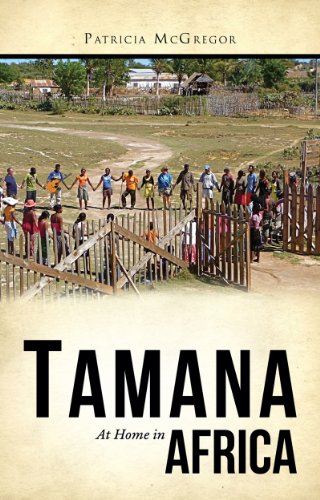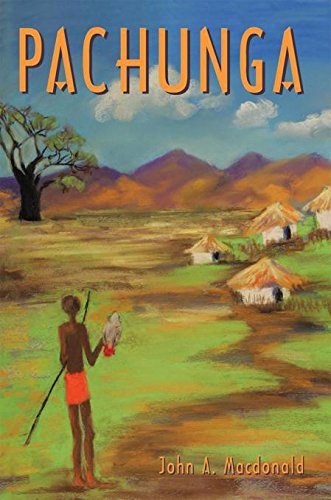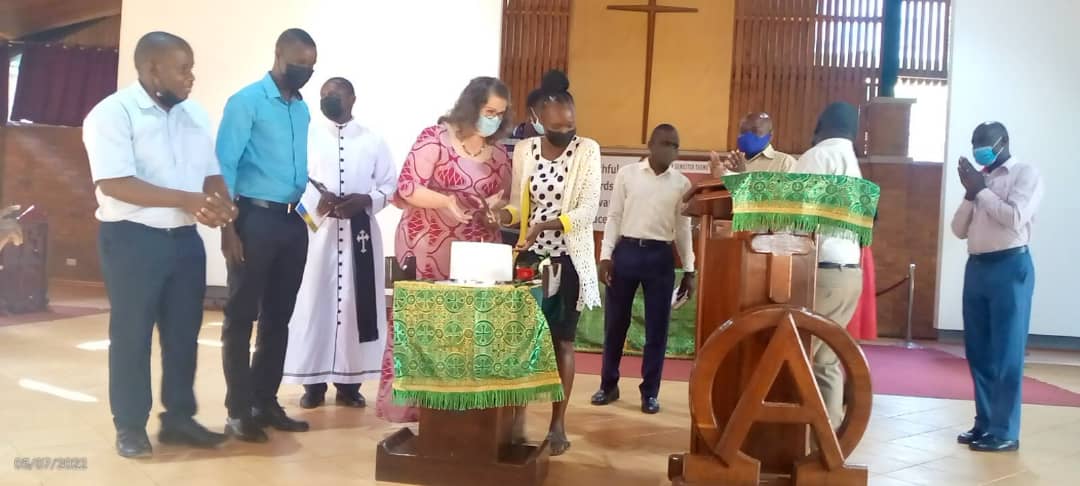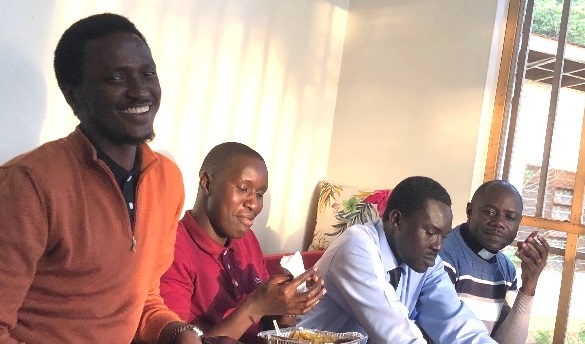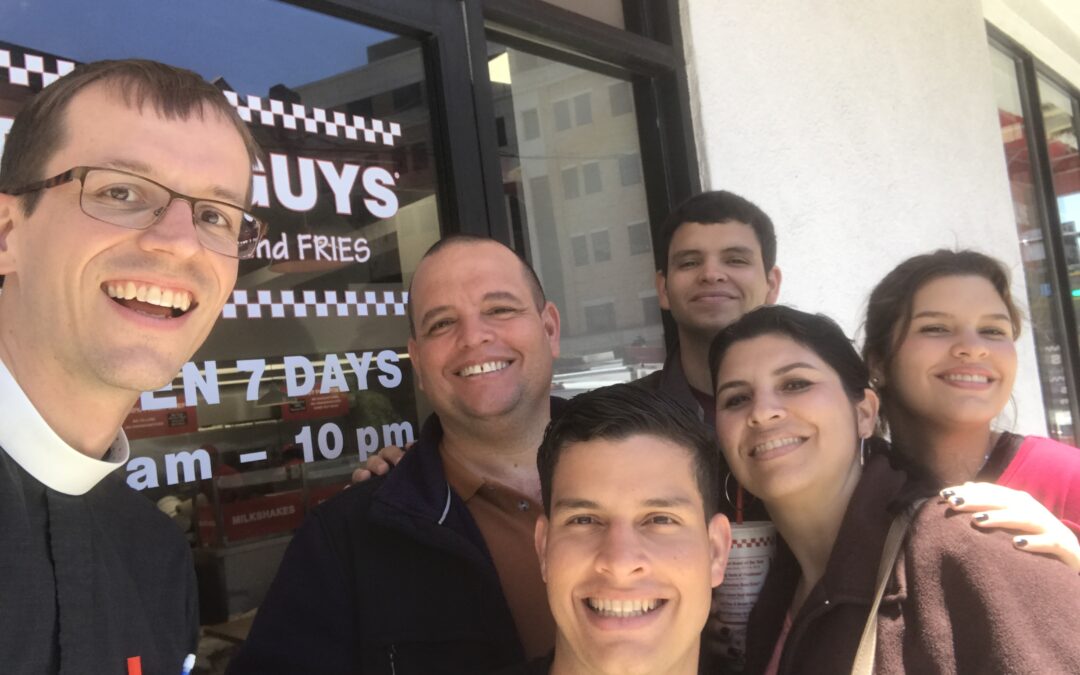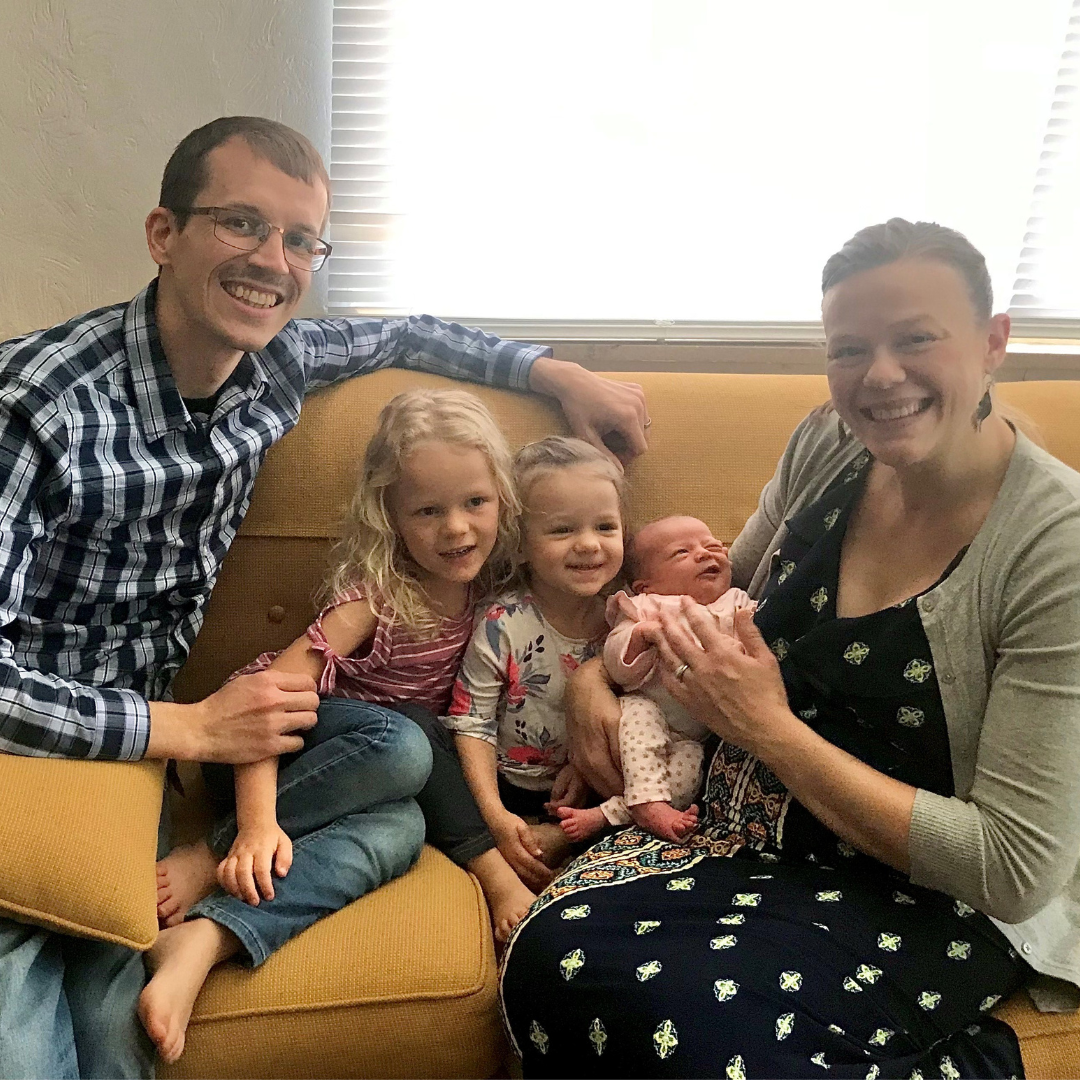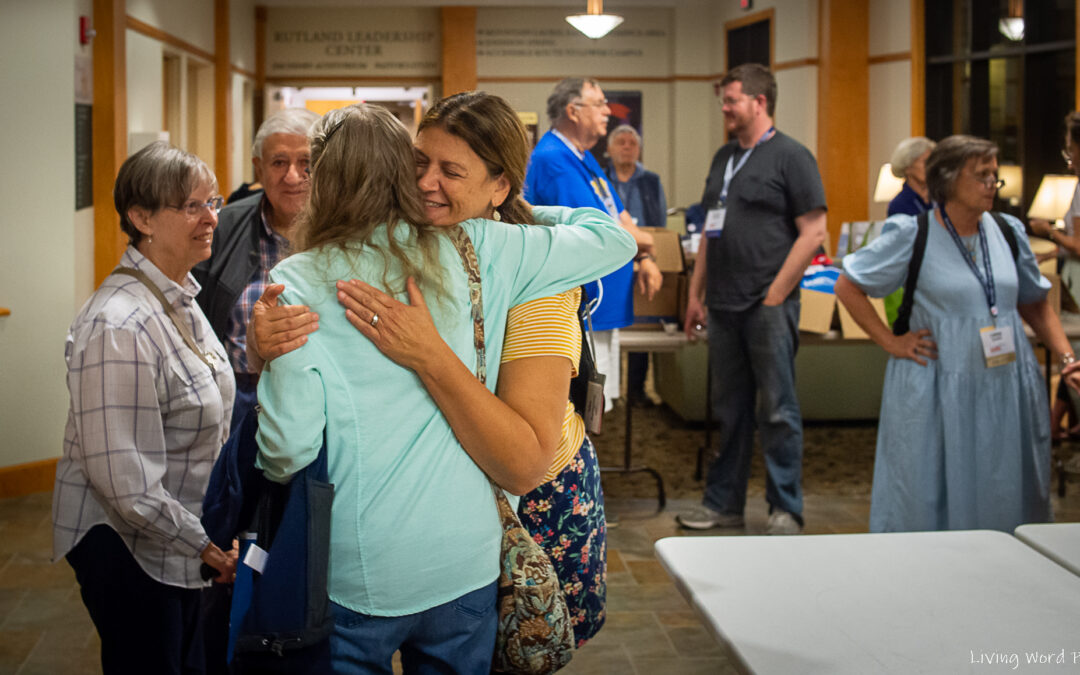
SAMS at New Wineskins: A Global Family Reunion!
Several hundred Missionaries and Senders gathered at Ridgecrest Conference Center in North Carolina in September for the SAMS All-Society Retreat, several pre-conferences, the SAMS Celebration Dinner and Reception, and New Wineskins Global Mission Conference!
The All-Society Retreat (Monday evening through Wednesday evening) was a time of refreshment and rejuvenation for Missionaries, alongside Senders who joined the event. At the retreat, music ministers Chris and Elise Massa, of Church of the Ascension in Pittsburgh, PA, gave four plenary talks on connecting with God through the arts. Missionaries spent time praying through God’s Word and artistic forms (visual art, poetry, and music). Chris and Elise led morning, noon, and evening prayer, including Elise’s original musical settings of prayers from The Book of Common Prayer. Elise also shared a concert of her own folk music reflecting on the human condition and God’s work in the world. Visual artist Amy Foster served in intercessory prayer and facilitated a prayer room where retreat attendees could prayerfully create their own art. Bishop Trevor and Dede Walters, Fr. Dick Copeland, and former missionaries Nick and Kathryn Kircher were present to provide pastoral care to Missionaries. Small groups met four times over two days, providing space for Missionaries and Senders to share their joys and burdens with each other, and to pray together. A service of Holy Eucharist closed the retreat with the Rev. Canon John Cruikshank celebrating and the Rt. Rev. Trevor Walters preaching.
More friends of SAMS, old and new, gathered at the Celebration Reception and Dinner on Thursday to learn of the work God is doing around the world. Attendees received complimentary books signed by Missionary authors, and Missionaries representing five continents shared stories of God’s work in Kenya, The Netherlands, Indonesia, Ecuador, and among immigrants in the United States. This was followed by a meaningful time of prayer around each table.
At the New Wineskins Global Mission Conference, SAMS joined several other Anglican mission societies and organizations to learn from over a hundred speakers and come alongside individuals and families discerning God’s role for them in His mission. What a joy it was to share in Eucharist on Sunday morning, worshiping with clergy and laypeople from around the world! Sarah Kwolek, New Wineskins board member, says, “it was a delight to see so many Anglicans engaging with God’s mission around the world, including over 1600 participants in person at the Ridgecrest Conference Center in Black Mountain, NC, and over 400 participants live-streaming the plenary events and MAP talks each day.”
Through events like these, your financial support of the SAMS Great Commission Fund helps provide pastoral care, useful resources for ministry, and training for Missionaries, enabling and strengthening their ongoing work in God’s Kingdom. These events also foster the global relationships necessary for Christ’s church around the world to work together making disciples of all nations. Thank you for partnering with us to see “a global Anglican family walking together in the way of Jesus to spread Kingdom change throughout our communities” (SAMS Vision).
Click through this photo gallery from SAMS’ week at Ridgecrest! Many thanks to Kevin Patterson for his ministry in capturing these moments of communal care, prayer, and training for Missionaries serving the Lord.

